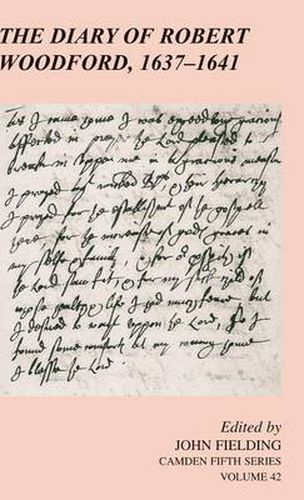Readings Newsletter
Become a Readings Member to make your shopping experience even easier.
Sign in or sign up for free!
You’re not far away from qualifying for FREE standard shipping within Australia
You’ve qualified for FREE standard shipping within Australia
The cart is loading…






Woodford’s diary, here published in full for the first time with an introduction, provides a unique insight into the puritan psyche and way of life. Woodford is remarkable for the consistency of his worldview, interpreting all experience through the spectacles of godly predestinarianism. His journal is a fascinating source for the study of opposition to the Personal Rule of Charles I and its importance in the formation of Civil War allegiance, demonstrating that the Popish Plot version of politics, held by parliamentary opposition leaders in the 1620s, had by the 1630s been adopted by provincial people from the lower classes. Woodford went further than some of his contemporaries in taking the view that, even before the outbreak of the Bishops’ Wars, government policies had discredited episcopacy and cast grave doubt on the king’s religious soundness. Conversely, he regarded parliament as the seat of virtue and potential saviour of the nation.
$9.00 standard shipping within Australia
FREE standard shipping within Australia for orders over $100.00
Express & International shipping calculated at checkout
Woodford’s diary, here published in full for the first time with an introduction, provides a unique insight into the puritan psyche and way of life. Woodford is remarkable for the consistency of his worldview, interpreting all experience through the spectacles of godly predestinarianism. His journal is a fascinating source for the study of opposition to the Personal Rule of Charles I and its importance in the formation of Civil War allegiance, demonstrating that the Popish Plot version of politics, held by parliamentary opposition leaders in the 1620s, had by the 1630s been adopted by provincial people from the lower classes. Woodford went further than some of his contemporaries in taking the view that, even before the outbreak of the Bishops’ Wars, government policies had discredited episcopacy and cast grave doubt on the king’s religious soundness. Conversely, he regarded parliament as the seat of virtue and potential saviour of the nation.